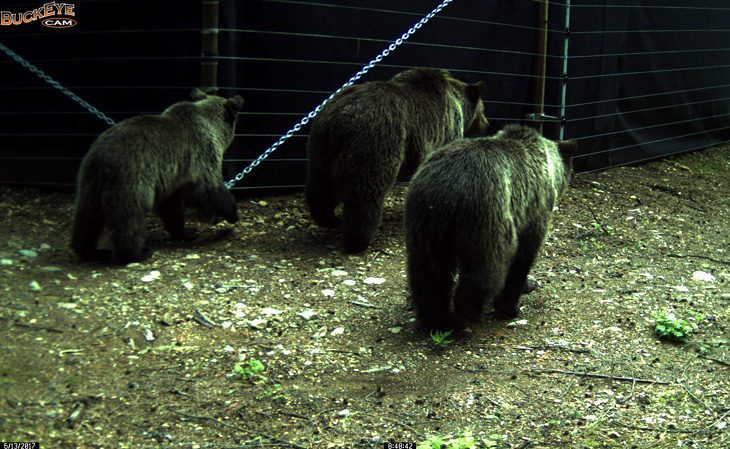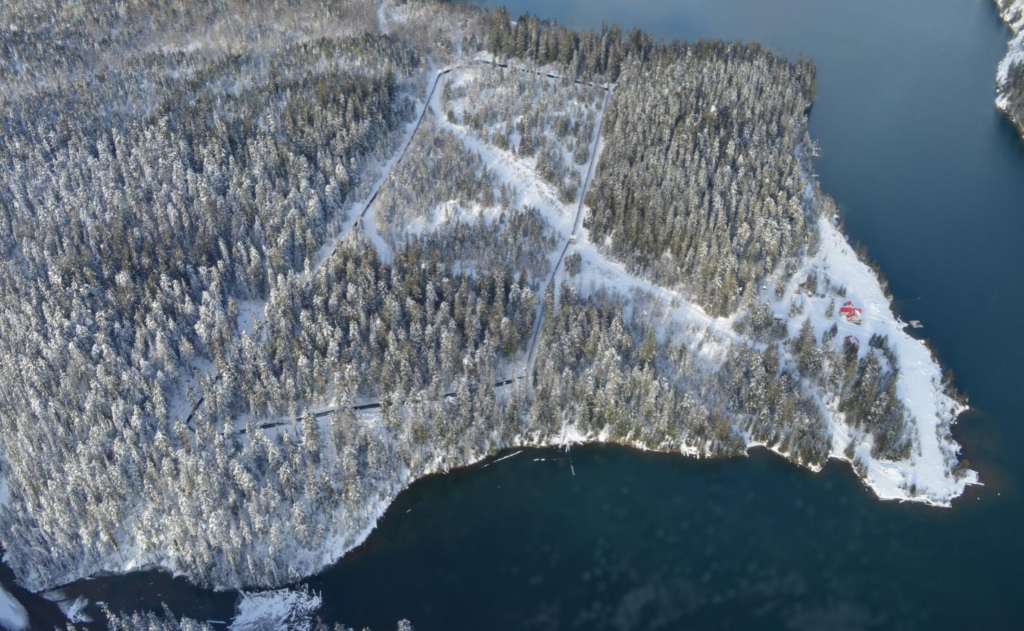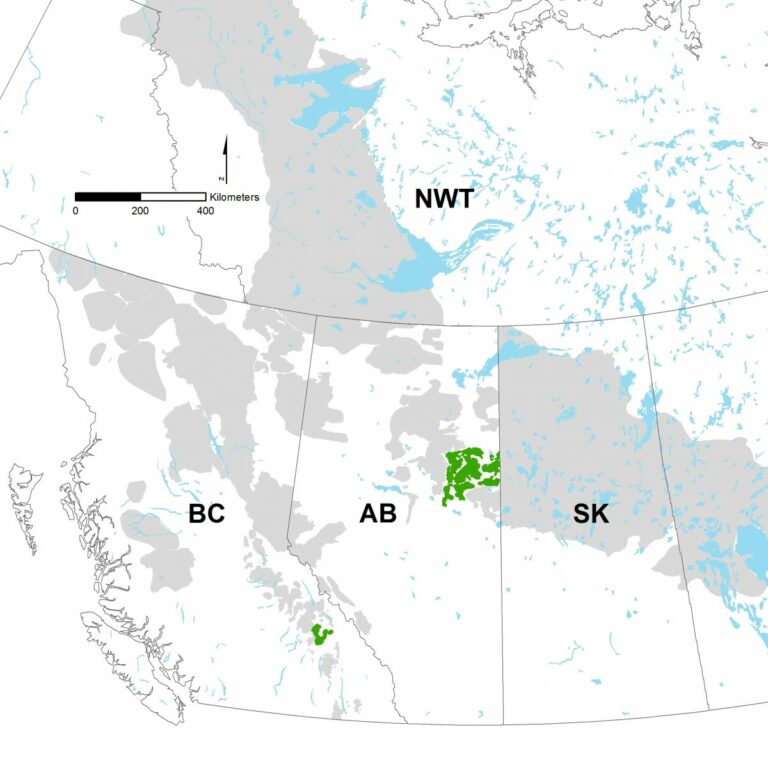Predator exclosures physically exclude predators from a particular species of interest, such as caribou, using a structural barrier or fence.

To address the issue of increased caribou predation, the Caribou Monitoring Unit (CMU) tested predator exclosures in northeastern Alberta caribou ranges in 2014 and 2015. The trials tested various fence designs across different habitat types in boreal Alberta, and evaluated whether the fencing could keep predators from entering a baited site. Knowledge gained from these tests is helping to inform the development of large predator-free areas for caribou, such as those already included in a draft range plan for the Little Smoky and À La Pêche caribou ranges.

The CMU also played a scientific advisory role for caribou maternal penning projects in BC, translating learnings to support caribou recovery in Alberta. The Revelstoke Caribou Rearing in the Wild (RCRW) project was completed in 2021 and had a goal of increasing calf survival by capturing pregnant caribou and transporting them to a secure holding pen to give birth. Calves were kept penned with their mothers for one month to protect them from predators during their most vulnerable stage.
The RCRW project met the proximate objective of doubling calf survival, however, a combination of factors (higher than anticipated mortality of adults and calves in the pen) meant that penning a higher number of females to increase the population growth rate did not occur. Compared to other penning projects, the RCRW site location was not ideal (too low in the valley) and probably contributed to the in-pen mortalities. If maternal penning is to proceed in this ecosystem, the site should be chosen using a number of site characteristics, including a higher elevation location. Any high-elevation site will create additional challenges given the deep snowfall that occurs in the Columbia Mountains.
